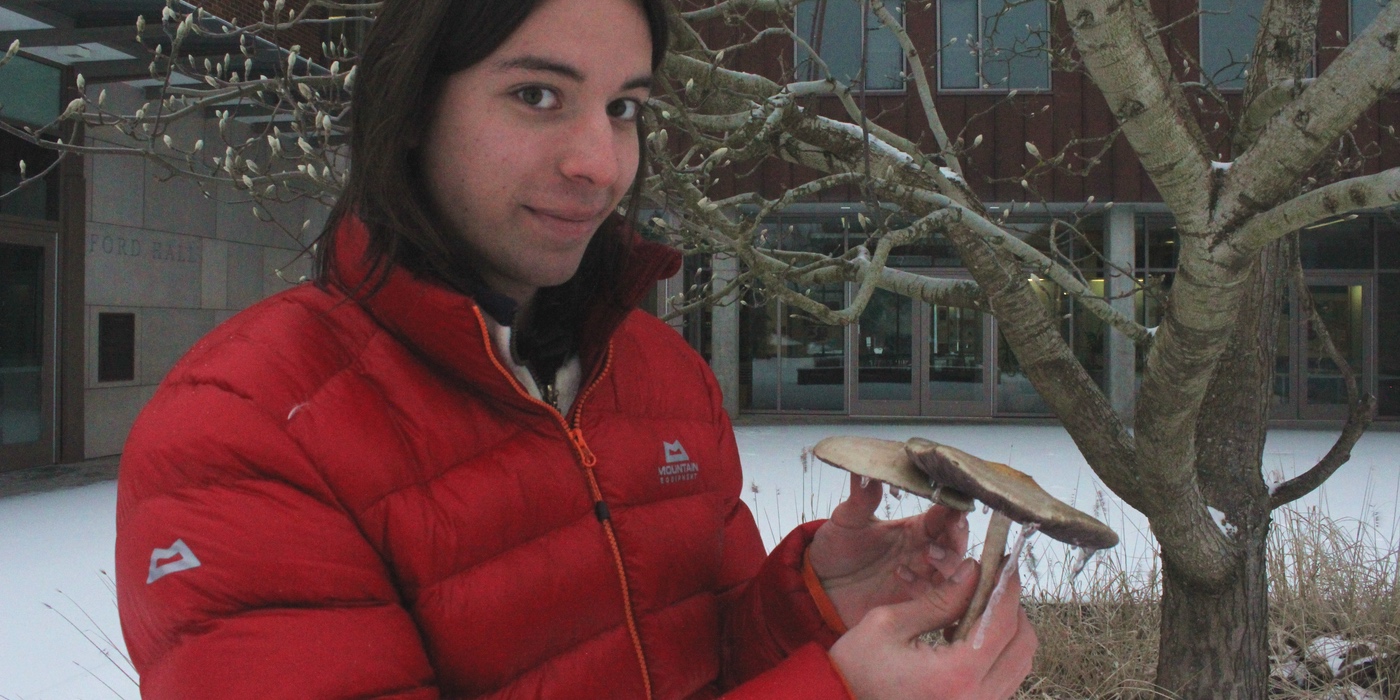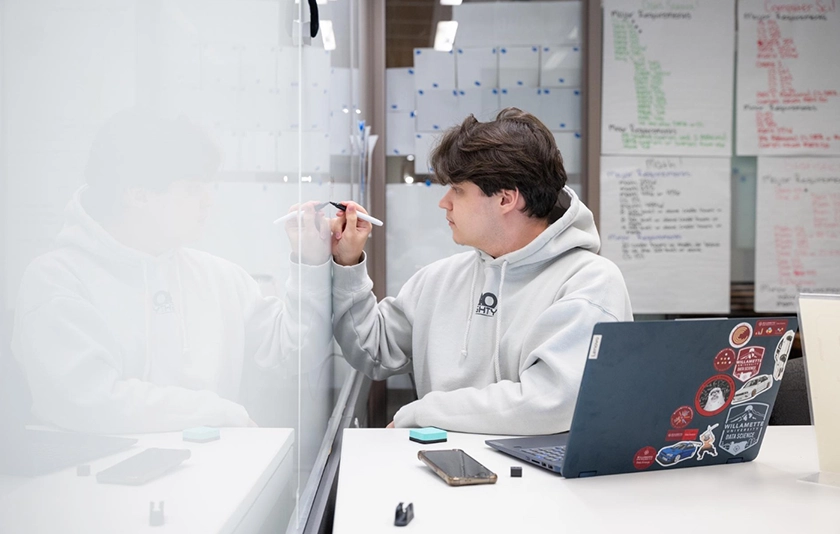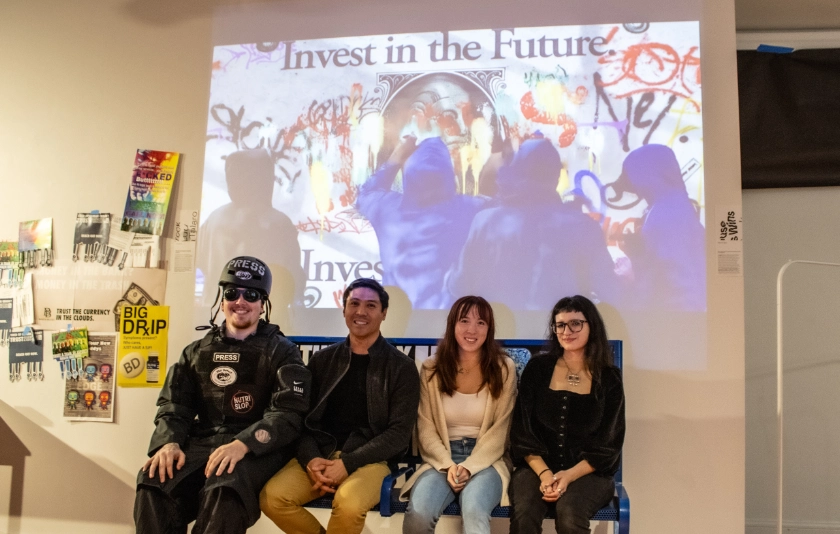Computer Science and Data Science double-major Henry Dalton BS’24 has leveraged access to interdisciplinary study at Willamette to turn an amateur interest in photographing fungi into a passion with mega possibilities for his future — and perhaps even the future of medicine.
It all started with Willamette’s Outdoor Program, where Dalton ran trips, taking students to Deschutes National Forest and Silver Falls State Park, among other wonders. With the Pacific Northwest’s fertile conditions for fungi, Dalton felt like he “couldn’t resist taking photos of the huge, beautiful mushrooms everywhere on the trails.”
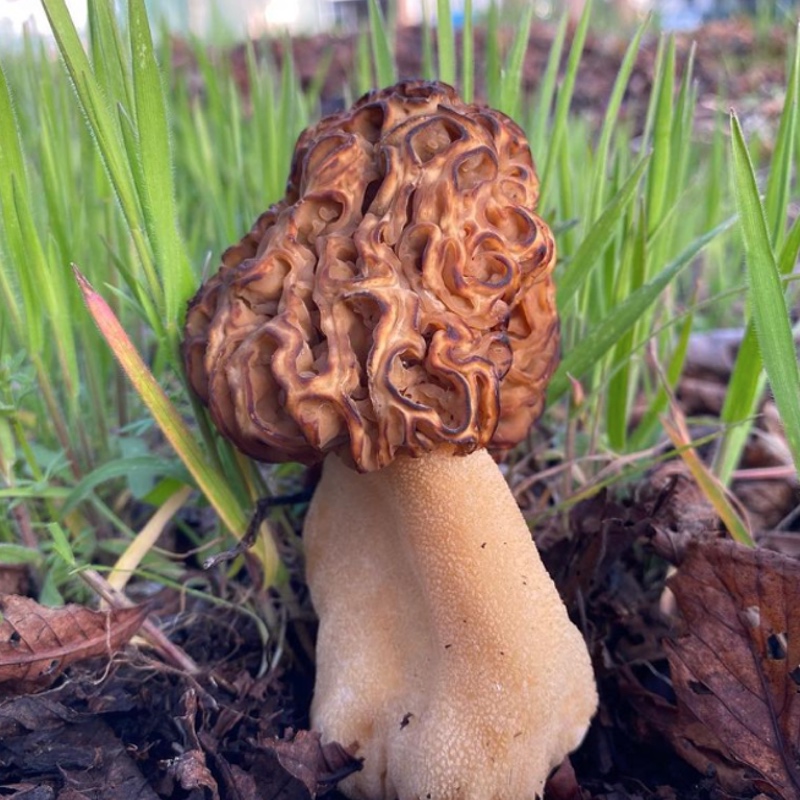 Eventually, Dalton created the Willamette Fungi Project, an Instagram account that educates the community on the local mycology. Through vibrant photos, the project documents local mushrooms and provides information about their unique properties and potential uses. Others took notice, including Professor of Biology and behavioral ecologist David Craig, who offered Dalton an independent study class focusing on fungi. Dalton is now in his second semester of the course and has tracked all the fungi growing on campus in a mushroom database.
Eventually, Dalton created the Willamette Fungi Project, an Instagram account that educates the community on the local mycology. Through vibrant photos, the project documents local mushrooms and provides information about their unique properties and potential uses. Others took notice, including Professor of Biology and behavioral ecologist David Craig, who offered Dalton an independent study class focusing on fungi. Dalton is now in his second semester of the course and has tracked all the fungi growing on campus in a mushroom database.
Dalton is also taking his research a step further beyond documentation: he has obtained an Oregon Psilocybin Worker permit from the Oregon Health Authority that lets him handle specialized fungi. He’s also involved in developing different growing techniques, which could be applied to the psilocybin industry. A product of fungi, psilocybin holds great hope as a drug to treat mental illnesses.
“I would love to find a way to apply my skills to the growing industry,” Dalton says. His current research with Professor Craig involves biochar, a substrate that has the potential to grow mushrooms more sustainably.
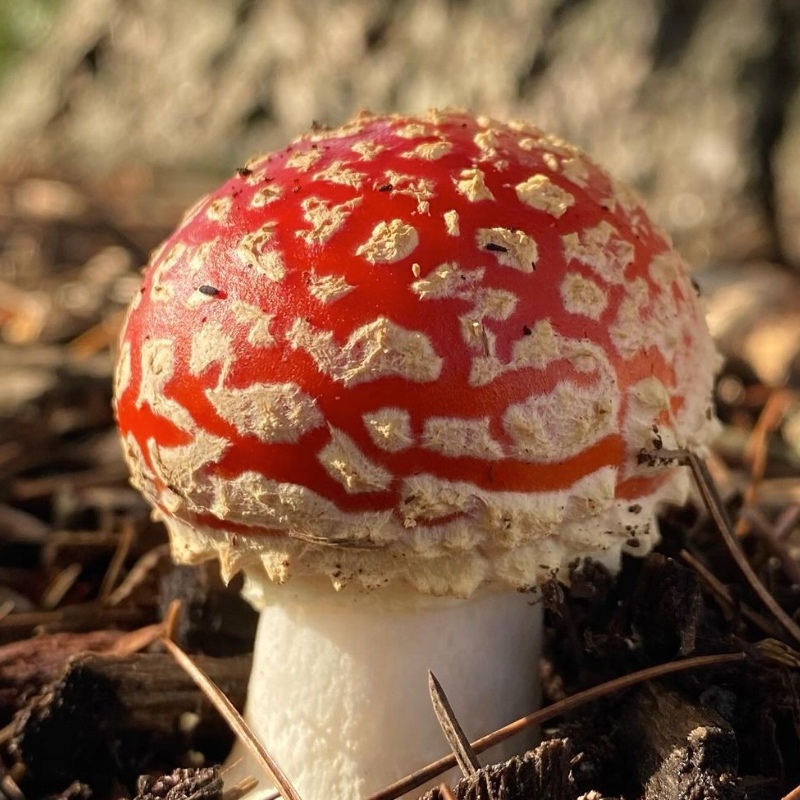 Fellow independent study student Adam Case BS’25, is also a fan of fungi and their properties. “As an Environmental Science major specifically focusing on regenerative soil health in agriculture, I've become more aware of the importance behind mycelial growth and development,” he says. “During my sophomore year, I took the Food Justice course taught by Associate Professor of History Wendy Boring and did some more research regarding biochar's potential incorporation into industrial agriculture.”
Fellow independent study student Adam Case BS’25, is also a fan of fungi and their properties. “As an Environmental Science major specifically focusing on regenerative soil health in agriculture, I've become more aware of the importance behind mycelial growth and development,” he says. “During my sophomore year, I took the Food Justice course taught by Associate Professor of History Wendy Boring and did some more research regarding biochar's potential incorporation into industrial agriculture.”
Both students are ready for the future of fungi. “Right now, I’m just kind of waiting for the industry to develop a bit more,” Dalton says. He’s thinking about graduate school next and hopes to pass the Fungi Project down so that it can continue to drive interest in fungi across campus and beyond to anyone on campus who has a passion for the unique research.
“I was always intrigued by this weird third category of life,” Dalton says of his original interest in fungi. “Everyone knows there are plants and animals, but where does the kingdom of fungi fit? They breathe oxygen, but they decompose. I think that strangeness is what caught my eye.”
